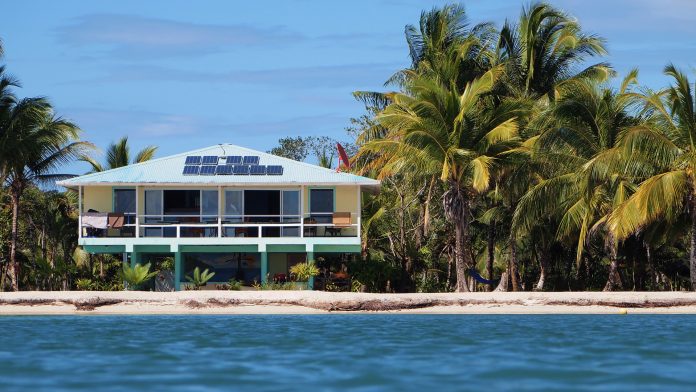As the climate emergency gets increasingly worse, more people are turning to an ‘off-grid’ lifestyle. Nick Rosen speaks to The Innovation Platform about life off the grid.
Meet Nick Rosen: author, campaigner and award-winning documentary film-maker. Rosen is an off-grid expert and is behind the online community ‘off-grid’ which reports on the people, technologies, events and influences throughout the global off-grid community.
The Innovation Platform speaks to Rosen about the meaning behind the term ‘off-grid’ and the necessary changes governments and companies need to make in order to ensure a sustainable future.
To start us off, can you give an introduction into what the term ‘off-grid’ means and the importance behind this?
‘Off-grid’ technically means any people or places which are operating without mains utility networks such as water, sewage and power. However, it also applies to all sorts of mobile and temporary locations like festivals, nomadic existences (people who live in vans etc.) and it increasingly applies to homes and businesses which are set up deliberately away from existing utility networks. It is important because of two different key factors:
- With increasing coverage of internet outside major collaborations, it is possible to run large operations almost anywhere; and
- The recent resurgence of environmentalism has led to a demand for off-grid development that has never been seen before.
What are some of the main advantages behind living an off-grid lifestyle and how can this be achieved?
The off-grid lifestyle may not seem for everyone, although it can be said that there’s not much difference between the off-grid and on-grid lifestyle if you do it correctly. There is a sense of taking back control that comes from managing your own power generation, water supply and garbage disposal. Additionally, the most important advantages are that it’s less expensive and it also allows you to have complete freedom of your location.
How much of a role does factors such as electric and hybrid vehicles play in creating a more sustainable and off-grid environment?
As everyone in the industry knows, it is very hard to predict how the electric vehicle industry will deal with the problems of recharging from a power supply. Continually, the taxation of electricity to vehicles will leave a hole of over £60bn in the British economy because of the VAT on petrol. However, what we do know is that there are huge opportunities for innovation in the vehicle-to-grid and vehicle-to-home markets. In particular, we can imagine situations where every house with a drive becomes a place to refill your car, and every car becomes a way of powering your house.
What necessary changes do we need to see happen within governments and companies to ensure a sustainable future?
The main thing we need is a continuation of the carbon disclosure policies that make it possible to evaluate the performance of individual companies. At the moment, this is all happening at multi-national level but really, carbon disclosure should apply to every company with more than 100 members of staff.
What is the work and role of off-grid?
Our main role is to act as a global hub for the community of people and businesses living and working outside the utility assistance. However, our focus this year is to persuade the UK Government to launch a series of off-grid villages around Britain, and we are looking for participation from property developers, housing associations, utility companies and local authorities.
In addition to this, it’s clear that interest in development is currently snow balling, partly because of the rise of extinction rebellion and Greta Thunberg, but also because the economic case is becoming unanswerable. It is 75% cheaper to develop new communities from scratch outside of the utility system where land is inexpensive, and start-up costs are extremely low.
Nick Rosen
Editor
Off-Grid.Net
www.instagram.com/offgridnet/?hl=en
www.off-grid.net/
Please note, this article will also appear in the first edition of our new quarterly publication.





